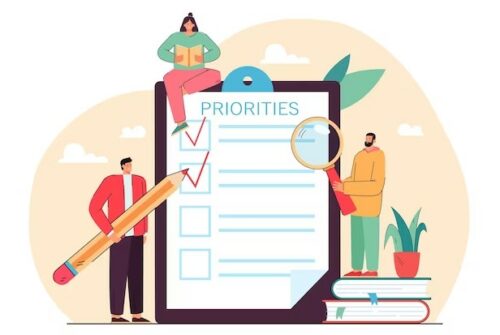“A journey of a thousand miles begins with a single step.”
–Confucius
Do You Accelerate Your Retirement, or Do You Rely on Hopes and Prayers?
Few people I talk to have a real, clear idea of when or how they are going to retire. It’s just some far-off dream that they have. “Someday,” they say, with the same arm wave that your television weatherman gives when pointing out areas on the map. They talk in generalities and with little certainty.
“Save some, invest some, and hope the market has good returns.” That’s the general retirement formula that most people have.
That’s not enough.
Does this mean that you have to immediately start sweating, stressing out, and sending your adrenal glands into cortisol-producing overdrive? No.
However, before I get into what the five simple steps to accelerate your retirement are, let’s look at why you might care.
- You control your own destiny. People want to blame the markets, the government, the boss, and the astrological indicators of Jupiter crossing into Orion’s bow for why they aren’t in control of their destinies. The simple truth is that you have the most control over your own destiny. What you do or don’t do has the highest impact on what happens in your future. You can take that control.
- You do not want to be dependent on others. If you have kids, you probably worry about the boomerang when they come back to live in your basement in their twenties (or thirties, forties, or fifties). On the other hand, you don’t want to be forced later to live in your kids’ basement in your sixties (or seventies, eighties, or nineties). Having a plan can prevent that from happening, unless, of course, you want to live in your kids’ basement.
- You remove money stress from your life. People lie awake at night worrying about money problems. It’s because they don’t have a plan and they don’t have an understanding of where they’re going in life. When you have a plan and you have a clear path to accelerate your retirement you’ve decided upon, life gets a lot easier. It’s also much easier to evaluate options when you have a chance to choose another path or life forces you to choose another path. To know where you are going in life, you must know where you are.
- You sleep better. Even if the destination is a long way off and it’s going to be a lot of work to get there, you can provide yourself with inner peace and harmony by knowing that you have a plan and knowing that you can get there. Uncertainty provides stress, so reducing uncertainty will reduce your stress, which will allow you to sleep better.
- Your relationship with your spouse will improve. Money problems raise the risk of divorce. Coming up with a plan together and agreeing to what will be done will help with those problems.
Having a plan doesn’t solve everything. You have to take the first step. And then the next. And then the next. Pretty soon, muscle memory takes over, and you progress towards your goals.
But, first you have to have a plan.
What are the five simple steps to accelerate your retirement?
Step 1: Set Your Personal Priorities

If you aim for nothing, then you will most assuredly achieve it.
Did you ever read the Choose Your Own Adventure books when you were a kid? Every page led you to a different choice. Your life is like that.
What has happened to you previously is in the past. It has defined you, but you get to choose what happens to you from now on. However, if you don’t take active control, then you will continue to live your life on autopilot.
Set your personal priorities in life. Think about it. Answer the question: What are your priorities in life?
Step 2: Retire TO Something!

You don’t want day one of accelerating your retirement to mark day one of the remainder of a pointless life. For a lot of people, retirement is merely an abstract concept. It’s a hammock on the porch watching the world go by. Doing nothing to accelerate your retirement is also a potion for entering into a downward spiral of boredom and lack of purpose in life. Tim Ferriss studied the happiness of young people who had become extremely rich during the dot-com boom in his book The Four Hour Workweek. For those who had gained true happiness, there were two driving causes:
- They were constantly learning. They never turned their brains off. Instead of giving in and letting their cognitive commitment atrophy, they sought to continue to mentally grow.
- They had a sense of purpose. They believed that they were on the earth to do something, and they continued to do so. Giving back, being committed, having a driving motivator in life made them happy.
Retirement shouldn’t be an escape from the cubicle. It should be a step towards something you truly want.
Figure out what you want out of life. Give yourself a goal: Retire TO something!
Step 3: Commit Your Future Self to Save

Change is hard. Anything that we do that takes away from our perception of enjoyment today is going to set our limbic system into overdrive. Our monkey brain is going to do everything it can to short-circuit our goals. Think about going to the gym. You don’t want to go today because it’s too hot, or you’re too tired, or the gym is crowded, or whatever other reason you can come up with not to go. So, you tell yourself you’ll go tomorrow.
The problem is that you won’t go tomorrow, either!
In saving for retirement, though, there is a way to tell yourself you’ll save tomorrow and actually do it.
Defeat the monkey brain. Save for your goals. Learn how: Commit your future self to saving.
Step 4: Protect Yourself From Old Age Economic Insecurity

Somewhere deep down in the recesses of our minds hide the images of old age fear and helplessness. We don’t want to be the bag lady, stuck living under a bridge out of a shopping cart, unable to work, and living on the precipice of survival.
In saving to accelerate your retirement, there is a way to tell yourself you’ll save tomorrow and actually do it. – Click to Tweet
There’s an actual basis for that fear. Social Security is usually only enough to ensure the barest of existences, and it will probably only be cut back further in the future. Depending only on Social Security for your well-being when you retire will almost certainly sentence you to an austere future life.
You can protect yourself. You can take steps to accelerate your retirement that you envision.
Take steps now and plan to protect your future. Learn how: Protect yourself from old age economic insecurity.
Step 5: Get a Personal Finance Accountabilibuddy

Huh?
As Henry J. Evans shows in his book Winning With Accountability, you have a much higher chance of succeeding in your goals if you have someone who will hold you accountable to them.
There are two parts of this equation that lead to a higher probability of success. The first part of the equation is that you are actually publicly stating your goals to someone else. Telling other people your goals improves your likelihood of achieving them. The second part of the equation is that you have someone who won’t let you get away with not taking steps toward achieving those goals. Our limbic system, the monkey brain, wants pleasure and it wants pleasure now. It will derail you from your goals if you let it. Having accountability helps keep Monkey Brain at bay.
Find someone to partner with you to achieve your goals. Get a personal finance accountabilibuddy.
Start the Journey
These five simple steps are not enough. However, they will get you focused, motivated, moving, and hold you accountable for your actions.
Author Profile
- John Davis is a nationally recognized expert on credit reporting, credit scoring, and identity theft. He has written four books about his expertise in the field and has been featured extensively in numerous media outlets such as The Wall Street Journal, The Washington Post, CNN, CBS News, CNBC, Fox Business, and many more. With over 20 years of experience helping consumers understand their credit and identity protection rights, John is passionate about empowering people to take control of their finances. He works with financial institutions to develop consumer-friendly policies that promote financial literacy and responsible borrowing habits.
Latest entries
 Low Income GrantsSeptember 25, 2023How to Get a Free Government Phone: A Step-by-Step Guide
Low Income GrantsSeptember 25, 2023How to Get a Free Government Phone: A Step-by-Step Guide Low Income GrantsSeptember 25, 2023Dental Charities That Help With Dental Costs
Low Income GrantsSeptember 25, 2023Dental Charities That Help With Dental Costs Low Income GrantsSeptember 25, 2023Low-Cost Hearing Aids for Seniors: A Comprehensive Guide
Low Income GrantsSeptember 25, 2023Low-Cost Hearing Aids for Seniors: A Comprehensive Guide Low Income GrantsSeptember 25, 2023Second Chance Apartments that Accept Evictions: A Comprehensive Guide
Low Income GrantsSeptember 25, 2023Second Chance Apartments that Accept Evictions: A Comprehensive Guide

